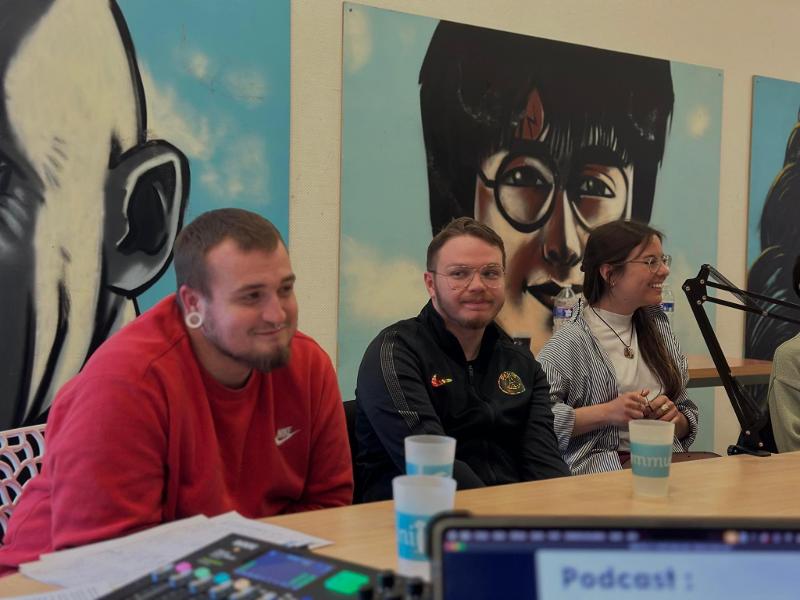Words of Europe: A "Toolbox" for the future of participation in the European Union
Words of Europe, launched in 2022, aimed to enhance participation in the EU through practical tools like podcasts and community artistic residencies. As it concludes, the initiative evolves into Ways of Europe, led by Arci Solidarietà, focusing on fostering meaningful interactions and inclusive participation across Europe.

The Words of Europe project, launched at the end of 2022, is reaching its natural conclusion. Over the past two years, it has tackled the growing phenomenon of abstentionism and distrust in democratic institutions, focusing on how to improve participation within the European Union. The project's original goal was not only to create new paths and narratives about the future of the Union, promoting a critical and constructive participation that can be embraced by European citizens again, but also to ensure the repeatability of the proposed processes and experiences. A central element in this regard is the Words of Europe (WE) toolkit, a collection of methods and experiences offering concrete ideas on how to improve participation in the EU and providing operational advice to actors in the association sector to replicate similar experiences, highlighting strengths and weaknesses.
The Words of Europe Toolkit
The toolkit represents a practical guide, developed through the collaboration of all project partners, aimed at building a participation model that actively involves communities and individuals often invisible in the dominant narrative about the EU. Through the toolkit, partners describe participatory methodologies that have fostered collective ownership of projects, engaging communities in an integrated and participatory manner. The toolkit is divided into two main sections: the first part introduces various methodological approaches to stimulate active participation, such as podcast recording, the World Café to facilitate dialogue, Photovoice to explore community issues through photography, community artistic residencies, and a collaborative approach to problem-solving. The second part collects experiences and testimonies from various European countries, showing how the methodologies of Words of Europe have been applied in different contexts, from Hungary to France, from Italy to Belgium, where partners have documented experiences of transnational participation and activation of their respective citizen segments.
Artistic Residencies
An important component of the Words of Europe project is the inclusion of community artistic residencies. These residencies aim to integrate art into the participatory process, using creative expression as a tool for community engagement and dialogue. By hosting artists within communities, the project fosters an environment where art becomes a medium for exploring and addressing local issues, promoting cultural exchange, and building stronger, more cohesive communities. The objective is to create lasting impacts through art, enriching the participatory experience and contributing to a more vibrant and inclusive European cultural landscape.
Ways of Europe
With the transnational event to be held in Brussels next October, Words of Europe will conclude its biennial journey. However, the path taken will not be interrupted but will transform into a new initiative: Ways of Europe. This new project, led by the cooperative Arci Solidarietà in Rome, builds on the experiences and data collected during the two years of Words of Europe and aims to further strengthen the overall framework, creating spaces for meaningful encounters between the various voices and instances encountered in the first edition. Ways of Europe aims to foster significant and collaborative interactions among these voices, building a common project together. This second edition will place greater emphasis on transnational debates, organized at the borders of Europe, both physical and thematic, to include marginalities and the richness of meaningful participation experiences. The project will analyze and explore both positive and negative examples of participatory practices, making this knowledge available to all, with the goal of promoting effective and inclusive participation across Europe. Ways of Europe also aims to bring together and connect various realities, creating a crossroads of ideas and projects. This approach highlights the significance of "ways" by facilitating the exchange and integration of diverse experiences and perspectives.
A new chapter
The closure of Words of Europe thus represents only the beginning of a new chapter. The transition to Ways of Europe promises to consolidate and expand the work done, laying the foundations for more inclusive and representative participation. This project aims to create a European Union where every citizen's voice counts, and where participation becomes the beating heart of European democracy. With Ways of Europe, the future of Europe will not just be in words but in the concrete ways we build a better tomorrow together.


